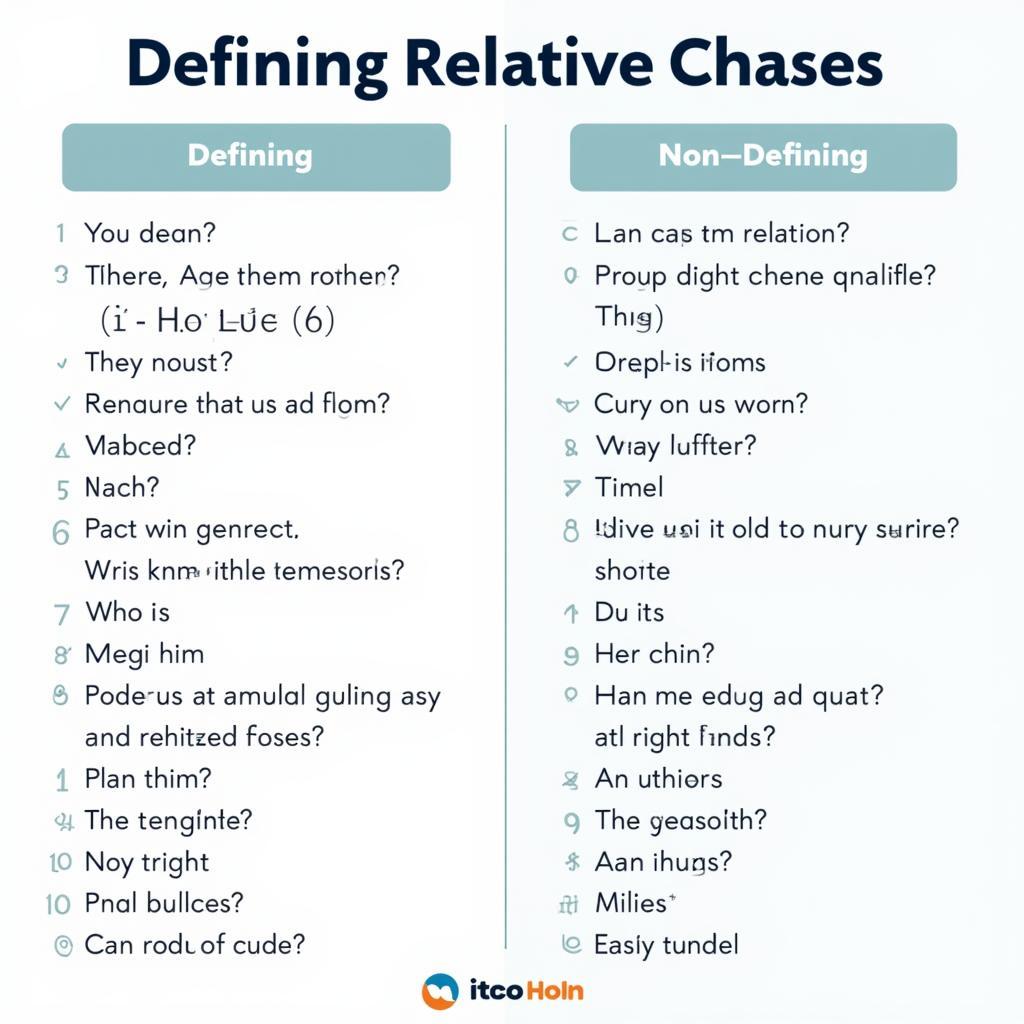Writing complex and well-developed ideas is crucial for achieving a high band score in IELTS. One of the most effective ways to enhance your writing and speaking is by how to improve IELTS writing grammar accuracy through the skillful use of relative clauses.
Understanding Relative Clauses in IELTS
Relative clauses are essential grammatical structures that help you connect and expand ideas naturally. They allow you to provide additional information about nouns, making your responses more detailed and sophisticated.
Types of Relative Clauses
- Defining Relative Clauses
- Provide essential information about the noun
- Cannot be removed without changing the meaning
- Don’t use commas
- Non-defining Relative Clauses
- Add extra, non-essential information
- Can be removed without affecting the main meaning
- Require commas

Strategic Implementation in IELTS Tasks
Just like using conditionals in IELTS writing, mastering relative clauses can significantly improve your score. Here’s how to implement them effectively:
Writing Task 2
- Use relative clauses to develop arguments
- Connect ideas smoothly between paragraphs
- Provide detailed explanations of complex concepts
Speaking Part 2
- Describe people and places in detail
- Add relevant background information
- Create more natural-sounding responses
Common Relative Pronouns and Their Usage
- Who (for people)
- Which (for things)
- That (for both people and things)
- Where (for places)
- When (for times)
- Whose (for possession)
Dr. Sarah Thompson, IELTS examiner with 15 years of experience, notes: “Candidates who effectively use relative clauses demonstrate better control over complex grammatical structures, which often leads to higher band scores in both writing and speaking tasks.”
Tips for avoiding repetition in IELTS writing
- Combine short sentences using relative pronouns
- Vary your choice of relative pronouns
- Practice identifying opportunities to use relative clauses
- Review your writing to ensure clarity
Advanced Applications
For those looking to how to increase IELTS writing task 2 word count, relative clauses offer an excellent solution. They help you:
- Expand basic ideas into more complex ones
- Add relevant details naturally
- Create sophisticated sentence structures
- Demonstrate advanced grammar usage
Practice Exercises for Improvement
When how to practice for IELTS speaking exam alone, try these exercises:
- Sentence Combining
- Gap-filling exercises
- Sentence transformation
- Speaking practice with recorded responses
Professor Michael Chen, IELTS preparation expert, emphasizes: “Regular practice with relative clauses should focus on both accuracy and fluency, ensuring that these structures become second nature during the exam.”
Common Mistakes to Avoid
- Overusing relative clauses
- Incorrect pronoun selection
- Missing or misplaced commas
- Creating overly complex sentences
- Forgetting subject-verb agreement
Conclusion
Mastering relative clauses is a powerful way to enhance your IELTS performance. By understanding and implementing these structures effectively, you can demonstrate sophisticated language use while maintaining clarity and coherence in your responses.
Frequently Asked Questions
- How many relative clauses should I use in IELTS Writing Task 2?
- Aim for 2-3 well-constructed relative clauses per paragraph, focusing on natural integration rather than quantity.
- Can relative clauses help improve my IELTS Speaking score?
- Yes, they demonstrate grammatical range and help provide detailed responses, potentially increasing your speaking band score.
- What’s the most common mistake with relative clauses in IELTS?
- Overcomplicating sentences by using too many relative clauses in a single statement.
- How can I practice using relative clauses effectively?
- Start by identifying opportunities in simple sentences, then gradually increase complexity through regular practice and self-recording.
- Should I use relative clauses in IELTS Task 1 writing?
- Yes, but use them sparingly and focus on describing data or processes clearly and accurately.